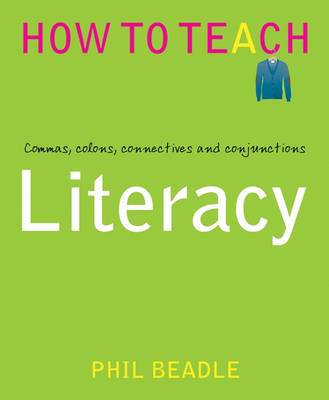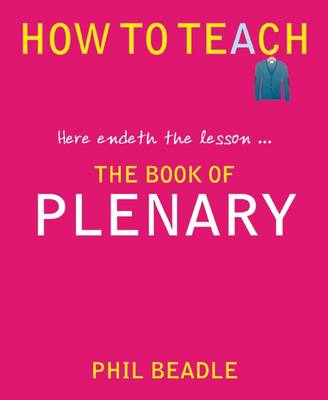How to Teach
2 total works
Literacy is important. This book is about getting it right. Its author is an expert in teaching children how to speak and write well, and has transformed the oral and written communication skills of many thousands of students. In Literacy he shares how he does it and what he knows about this most important of all skills and reveals what every teacher needs to know in order to radically transform literacy standards across the curriculum. The stories, anecdotes and insights into the many practical activities in this book are, in turn, and often in the same sentence, heart breaking, inspiring, shocking and, as ever, funnier and more readable than those in an education book have any right to be.
Part of Phil Beadle's How to Teach Series.
If you buy only one book on metacognitive strategies for the last ten minutes of the lesson this year, make it this one!
The Book of Plenary is part of Phil Beadle's How To Teach series, in which he examines in detail every aspect of the modern classroom. The first half of this volume gives interested teachers a series of easy-to-set-up activities that make plenaries engaging and worthwhile. The second half is a detailed and almost serious examination of metacognition in the classroom. It seeks to give teachers the stimulus to prepare and research plenaries fully so that they actively seek to develop the metacognitive experience, knowledge and self regulation of students. Distanced from glib 'learn-to-learn' programmes, this book engages with available research about metacognition and presents its relevance to the classroom in a lively, although sometimes childish, manner.
If you buy only one book on metacognitive strategies for the last ten minutes of the lesson this year, make it this one!
The Book of Plenary is part of Phil Beadle's How To Teach series, in which he examines in detail every aspect of the modern classroom. The first half of this volume gives interested teachers a series of easy-to-set-up activities that make plenaries engaging and worthwhile. The second half is a detailed and almost serious examination of metacognition in the classroom. It seeks to give teachers the stimulus to prepare and research plenaries fully so that they actively seek to develop the metacognitive experience, knowledge and self regulation of students. Distanced from glib 'learn-to-learn' programmes, this book engages with available research about metacognition and presents its relevance to the classroom in a lively, although sometimes childish, manner.

